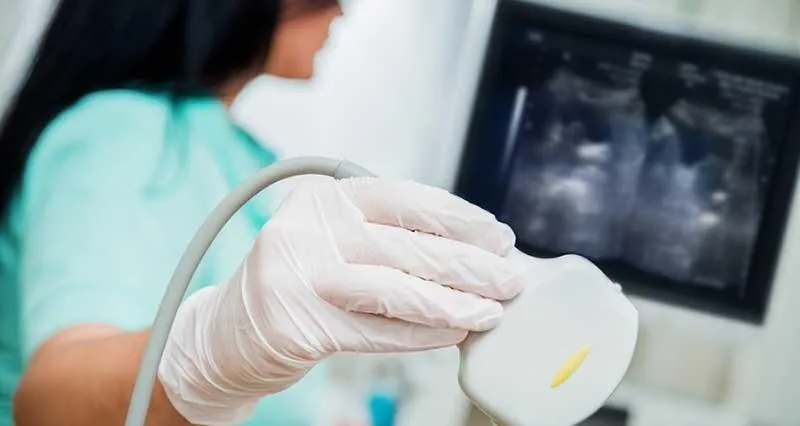Ultrasound Scan - How, What, Why- All your questions answered
What is an ultrasound scan?
An ultrasound scan is a medical diagnostic imaging technique that utilises sound waves to obtain internal images of the body.
A probe, called a transducer, rests on the skin. This probe sends soundwaves inside the body. Some of the sound waves bounce back to the prop and a powerful computer creates the black and white ultrasound image. The returning sound is called echoes.
Ultrasound scans are widely being used today as the first line of diagnostic imaging because they are relatively cheap, more available than CT and MRI and have no side effects.
Why should you have an ultrasound scan?
The reasons you might be having an ultrasound scan vary but, in most cases, you have been to your GP with some discomfort and maybe pain and your GP wants to see what is happening inside you.
Other reasons for having an ultrasound scan could be heavy menstrual bleeding or you maybe you are pregnant.
Is an ultrasound scan painful?
No, ultrasound scans are not painful as they use sound waves. Sometimes, however, depending on the kind of the scan you are having you might feel a bit of discomfort during the examination. You may feel some discomfort, for example during a pelvic transvaginal scan where a long thin probe is inserted in the vagina.
Can ultrasound see the bone?
The ultrasound waves like soft tissue to travel through and therefore visualisation of bony structures is not great. This is why ultrasound scans are mainly used to visualise abdominal organs such as liver and kidneys and muscle. Ultrasound waves don’t travel well through air and this is why we are not able to see the stomach or bowel with ultrasound.
What is US abdomen or US Pelvis?
You have probably been referred by your GP to have an examination and you have received an appointment from your local NHS hospital called US abdomen. Most of the NHS ultrasound departments use US as a shortcut to mean ultrasound so you are going to have an ultrasound scan of your abdomen or an ultrasound scan of your pelvis. You can find more information about the abdominal scan and Pelvic scan by clicking the links.
Can you see lymph nodes on ultrasound?
Ultrasound is very good at visualising soft tissues and therefore is the primary investigation for lymph nodes, especially superficial lymph nodes. The ultrasound scan can evaluate the size, the shape and the appearance of the lymph node. It is very common to feel lymph nodes around your neck area or the groins as they are superficial.
If the lymph node has unusual appearance a fine need aspiration (FNA) may be necessary to conclusively evaluate the lymph node.
Do ultrasounds see cancer?
Well yes and no. Ultrasound will detect an abnormality such as a mass. It is not, however, always possible to definitely say that this mass is cancerous and further investigation such as MRI and a biopsy sometimes may necessary to confirm. The main scope of ultrasound is to quickly identify if there is a problem and speed up further investigations.
Can stomach cancer be detected by ultrasound?
No, ultrasound waves like soft, solid organs to travel through and the stomach is not a solid organ. The main examination to visualise the stomach is via endoscopy. Ultrasound, however, can evaluate the organs around the stomach such as liver pancreas gallbladder and therefore exclude any other causes for the upper abdominal pain. The upper abdominal ultrasound scan is the most suitable ultrasound examination to investigate for any other causes of pain in the upper abdomen.
Can pelvic ultrasound detect cancer?
The pelvic ultrasound scan using a transvaginal technique will be able to evaluate the endometrial cavity and the ovaries. If your doctor suspects gynaecological cancer you will probably have a CA-125 blood test which probably is elevated. The ultrasound scan might identify problems with your endometrium or the ovaries and even if these findings are suspicious of cancer further imaging will be required to confirm.
Can a pelvic ultrasound detect endometriosis?
You cannot see endometriosis on the pelvic ultrasound scan but cysts associated with endometriosis may be visible. This is called endometriomas or chocolate cysts. To definitely confirm endometriosis and laparoscopy may be necessary.
To Be continued...





